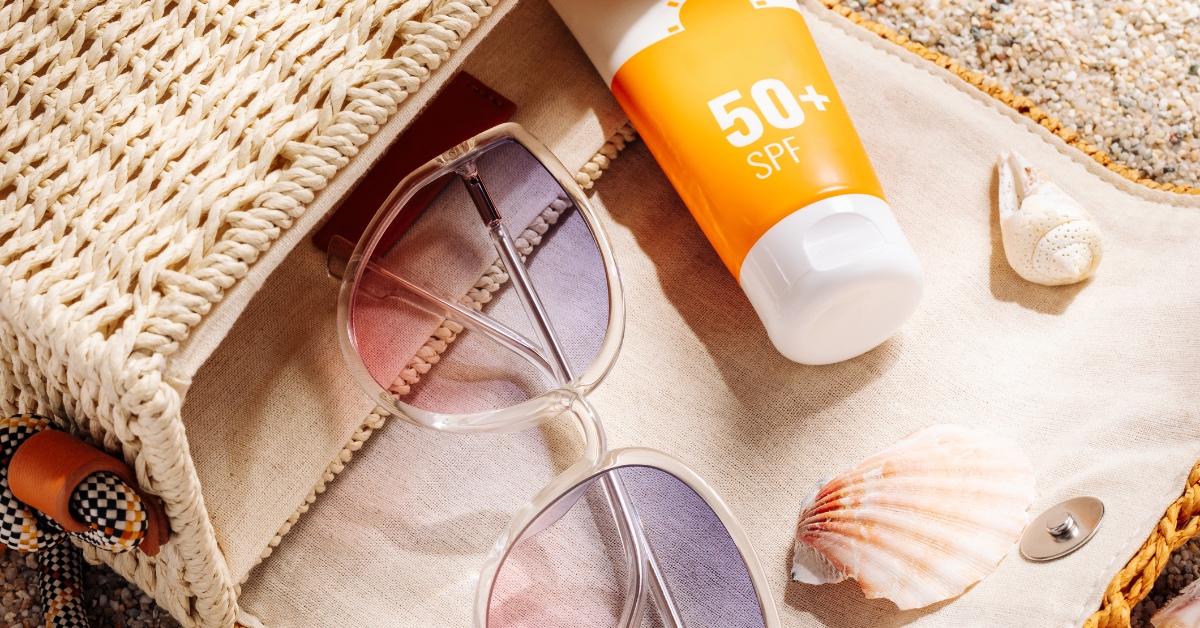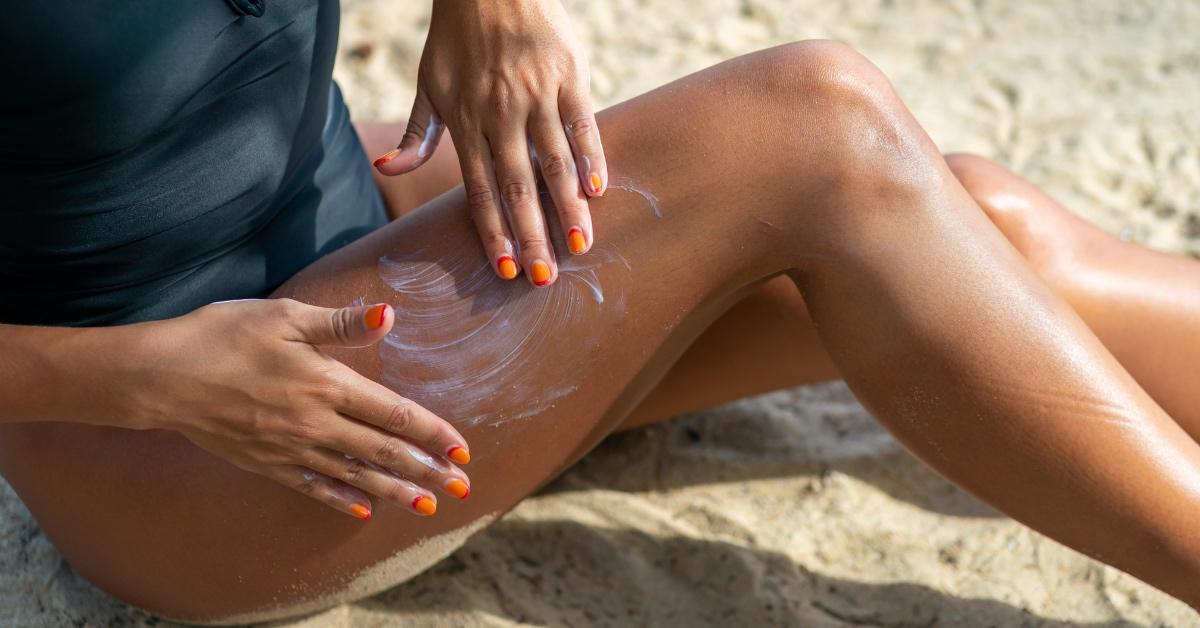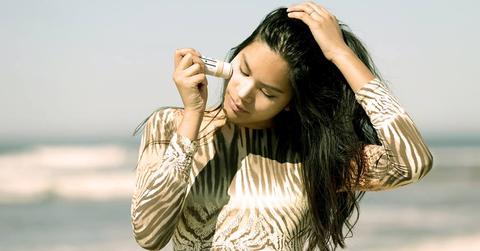Everything You Need To Know About Organic Sunscreen Before Hitting The Beach
Plans for sunny beach days and long hiking trips are not far away.
Updated May 6 2024, 3:25 p.m. ET
While everyone knows that sunscreen is one of the best tools to keep skin safe from the sun’s harmful UV rays, the decision of which sunscreen to slather on can sometimes be tricky. Although there are more sunscreen options than ever, organic formulas may be a good choice when heading outside this summer.
So what sets organic sunscreens apart from other sunscreens? According to Bustle, sunscreens basically break down into two groups because they work differently and often have different kinds of ingredients. Keep reading for everything you need to know.

What makes an organic or a non-toxic sunscreen?
First, there are chemical sunscreens which sink into the skin and work to absorb UV rays. On the other hand, there are physical sunscreens which are usually a thicker consistency and work by blocking or reflecting UV rays.
While it may sound relatively simple, things can get confusing because the word “organic” is often misused. Doctor Sarah Villafranco, founder and CEO of Osmia Organics explained to Mind Body Green that organic sunscreens are technically ones that use carbon-based chemicals. However, when consumers think of organic sunscreens, they’re usually thinking about non-toxic ones.
The people who have the final say on what is or isn’t organic is The National Organic Program of the USDA, but their published list doesn’t always clear up the confusion because it is based on things used in agriculture or food production, not necessarily skincare ingredients.

Here are some of our favorite organic and non-toxic sunscreens.
What do the doctors recommend? Doctor Villafranco suggests using sunscreen with non-toxic ingredients. In an interview with Green Matters, Dermatology specialist Doctor Diana K. Cohen shared, “Physical sunscreens overall do a better job of protecting against UVA and UVB, so I often recommend people opt for the ‘inorganic’ version. Of course, then you must look at the many other ingredients in the sunscreen.”
Whatever your preference, reading the ingredients is always the best thing to do before tossing any sunscreen into your shopping cart. Some types of ingredients which are generally considered to be safe include antioxidants, natural plant oils, and anti-inflammatories like jojoba oil or shea butter. Ingredients to consider skipping include petrochemicals, silicones, synthetic preservatives, and synthetic fragrances.
Surf Mud by Eir
One sunscreen free of scary sounding ingredients is Surf Mud. In an email interview with Green Matters, Eir founder Jun Lee says, “The Surf Mud pro comes in 100% compostable packaging and all the ingredients are clean and it's practically edible. Containing chocolate, it's loaded with antioxidants, moisturizing, and long lasting.”
Guava Mango Sunscreen Spray by Coola
Into something more fruity? Coola’s Guava Mango Sunscreen Spray includes over 70 percent certified organic ingredients. It’s also water resistant and created to stay even through the sweatiest of sports sessions. If you aren't interested in purchasing from Coola's website, it's also available from beauty supplier Ulta.
Mineral Sunscreen Butter by All Good
Another great option is All Good’s Mineral Sunscreen Butter. The brand is making strides to help stop coral reef bleaching which can occur when the reefs are exposed to harmful toxins in sunscreens.
A representative from All Good explained to Green Matters in an email interview, “We use all certified organic ingredients in production, protecting your skin and the ocean ecosystem with every use!” She continued, “As an entirely clean, biodegradable, mineral-based sunscreen, All Good provides an alternative to these chemical ingredients with a reef-friendly sunscreen that helps protect coral reefs and your skin.”
Pot of Shade Heliotropic by Kypris Beauty
Kypris Beauty’s Pot of Shade Heliotropic is another great option for your UV ray fighting arsenal. A representative from Kypris Beauty tells Green Matters that all their ingredients are “100% natural and nature-derived, scented and preserved with essential oils and plant extracts.” This sunscreen is also packaged in glass, which is helpful in avoiding plastic packaging, and never tested on animals.
Hawaiian Sunscreen Face Island Vibe Sunscreen Lotion SPF 50 by Alba Botanica
Alba Botanica offers a sunscreen with organic ingredients for bright sunshiny days. This popular brand’s Hawaiian sunscreen face island vibe lotion SPF 50 is a must-have for beach goers since it’s coral reef safe and biodegradable. It’s also on the Skin Cancer Foundation's recommended list of sunscreens.
Whichever sunscreen type you choose to use this summer, always remember to check with your doctor first to make sure it’s a good choice for your personal skincare needs. Also, don’t skip the hat and long sleeves whenever possible, since those can also help protect from sun damage. Once you settle on a sunscreen of your choice, remember to reapply every so often throughout the day to get the best coverage.
This article, originally published on May 17, 2018, has been updated.
